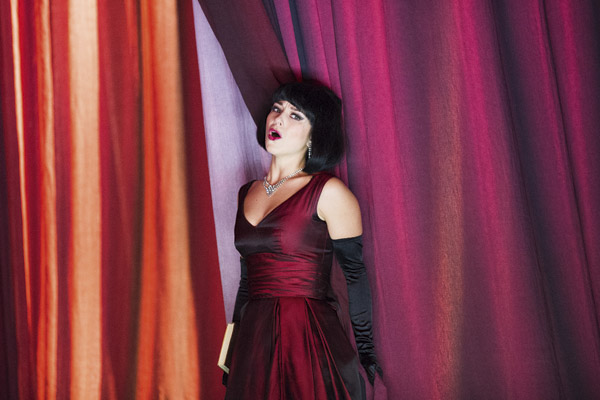This week has featured new productions at the Royal Opera and English National Opera of staples of the repertoire, both subjected to drastic rethinking. Tchaikovsky’s Eugene Onegin is the first production at the Royal Opera of the new Director of Opera, Kasper Holten, and on this showing I very much hope it will be the last. It has been reviewed coolly on the whole, but I haven’t read anyone being sufficiently abusive — adequately, that is, to the experience of sitting through a flawed but moving masterpiece that is systematically, though I’m sure involuntarily, slaughtered from the opening moments to the wretched close.
This is an opera that Holten loves, and he has made clear that he learnt Russian to get to the heart of it. The aching opening music, though under Robin Ticciati it doesn’t ache enough, is mimed, a fashionable but almost always bad idea. If you’ve looked down the cast list, you’ll have noticed that it includes two characters that the librettist and composer neglected in their version, Young Onegin and Young Tatyana, and once the opera gets under way we find that they are dancers, who act out, anyway some of the time, what their old selves sing, the opera in Holten’s version being a sad remembrance of things past. So while Krassimira Stoyanova sings her great Letter Song, her younger self is kneeling at a chair writing the letter, then semi-dancing round the stage.
Tchaikovsky is nothing if he is not involving; Holten, with this device, ensures that everything is distanced, refracted, with catastrophic and completely predictable consequences. The opera’s other most famous scene is the dawn duel between Lensky and Onegin, friends who have absurdly fallen out at a ball. Once again we get the two Onegins on the stage, the young one delivering the fatal shot, the older one standing by beseechingly and even putting a pistol to his own head, though he thinks better of it — he has to, since there’s another 45 minutes of the opera. Poor Lensky not only falls dead but also remains lying at the front of the stage for the duration. The final scene, in which Onegin comes to beg Tatyana to leave her worthy dull husband and live with him, is sabotaged again, not only because Prince Gremin, the husband, comes and overhears the discussion, but also because the doubles are wandering around — and this culminating scene has some of Tchaikovsky’s less convincing music, so it needs help, not more confusion.
The musical performance is good, without being as outstanding as the cast list promises. The star of the show, and not only because he can lie still for so long, is Pavol Breslik as Lensky, passionate and plangent. Neither of the two principals — the singing ones — is in the first flush of youth, but both Stoyanova and Simon Keenlyside still have magnificent voices, and both can act, though what they are required to do is perverse. All told I found it hard to judge the musical level, since I found the total concept so miserably refrigerating.
Where Holten pointlessly adds, Peter Konwitschny, most terrible of directorial enfants, strips La Traviata down to its bare essentials, with one egregious exception. All told this new production at English National Opera is the most moving version of this usually weary warhorse that I have ever seen, much to my surprise. Michael Hofstetter, whom we urgently need to see/hear more of, is the inspiring conductor, drawing playing of the utmost refinement and intensity from ENO’s orchestra, and galvanising the singers into performances of extraordinary power. No doubt Konwitschny is partly responsible for that, too, though this is a far finer performance than the same production from Graz, available on DVD.
The setting is a series of endless curtains, as in the old days in cinemas, and a chair. For the final scene the Germonts and Annina join the audience, only Violetta is a truly alive human being, and at the very end she walks away into the last darkness. Corinne Winters gives a performance of genius, with a wonderfully supple voice, though she tends to shriek on high notes, possibly a planned effect. But her ‘Amami Alfredo’ was the most heart-rending since Renata Scotto. This Violetta is perfectly poised between Lulu and Mimì.
Her unlikely Alfredo is a bookish nerd, duffel-coated, a complex performance from Ben Johnson. Anthony Michaels-Moore is a bullish Germont, and the grotesquely unnecessary addition is the appearance of his daughter on the stage, a 12-year-old, though engaged, whom he manhandles. I can’t see that this does anything to enhance the action, and above all it distracts attention from Violetta, who is really the only centre of interest. The score is cut, I’m pleased to say: no second verse of ‘Addio del passato’, no gypsies and matadors. I can’t believe that if Verdi had seen this he wouldn’t have approved of everything but the superfluous daughter. At last a triumph for ENO, and one which resuscitates a patient who I thought had breathed its last.






Comments